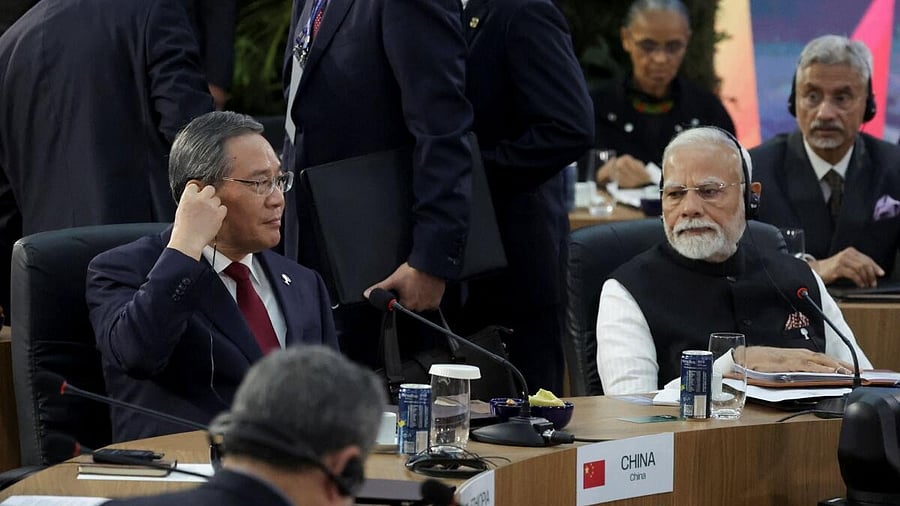
Prime Minister Narendra Modi and China's Premier Li Qiang, attend the opening meeting of BRICS Summit.
Credit: Reuters photo
Taking to the stage at the BRICS Summit, Prime Minister Narendra Modi emphasised the need for member nations to collaborate in order to secure supply chains for critical minerals and make sure no country uses these resources as a “weapon” against others.
PM's remarks were made against escalating concerns over China's restrictions on exports of rare earth materials since April 2025— a form of retaliation against United States' tariffs.
However, China's dominance and restriction over these must-have materials have disrupted the global supplies and Modi's veiled dig brings to the fore the mounting supply shortage of rare earth minerals.
“We need to work together to make supply chains for critical minerals and technology secure and reliable. It’s important to ensure that no country uses these resources for its own selfish gain or as a weapon against others,” Modi said.
China controls over 90 per cent of global processing capacity for the rare earth magnets, which are crucial not only for automobiles but also for clean energy and home appliances.
Moreover, China's restrictions have also forced India to ramp up its own domestic exploration and production of critical materials in order to meet its demands.
According to a DH report, the Indian auto sector is facing a potential crisis as they rely heavily on China for rare earth magnets.
Industry sources said several auto makers are likely to face production disruption from August if the rare earth magnet shortage issue were not addressed.
The top leaders of BRICS from around the world flocked to the seaside Brazilian city and discussed a host of issues ranging from environment and the impact of climate change to concerns regarding Artificial Intelligence.
Chinese President Xi Jinping and his Russian counterpart Vladimir Putin skipped the summit. Iranian President Masoud Pezeshkian and Egypt's Abdel-Fattah el-Sissi also didn't attend the gathering.
